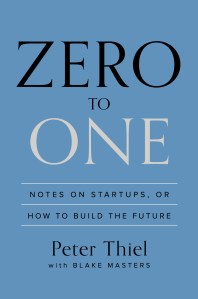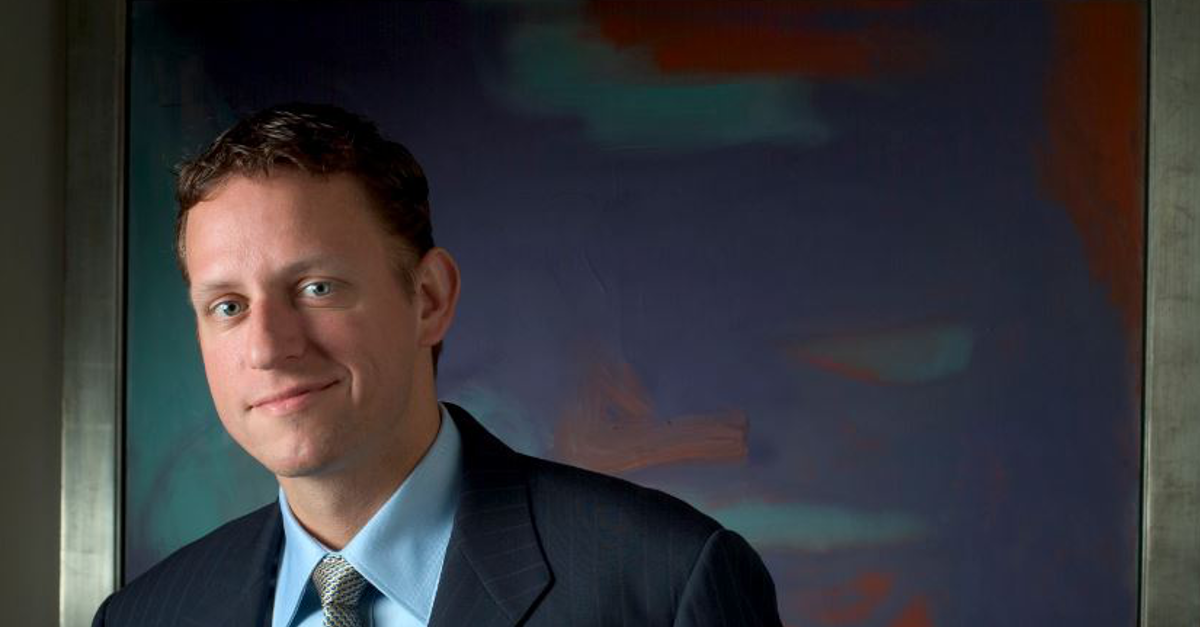For the last two decades, entrepreneur Peter Thiel has been at the forefront of some of the world’s greatest tech innovations.
Videos by Rare
After giving up pursuing a law career, Thiel founded PayPal at the age of 31 in 1998, and for the last 16 years has used his business success to help nurture tech startups and political campaigns across the country.
In early October, Thiel released “Zero to One,” a revolutionary manual to how to succeed in today’s ever-evolving technological and political landscape. Though Thiel’s background is entrepreneurial, he’s found a niche in Republican politics.
Rare recently spoke with Thiel about what a modern candidate needs to do to win over the country, and how the political sphere can recover from years of partisan damage.
Within “Zero to One,” Thiel discusses the “culture of conformism” that can be found in classrooms, and state houses around the nation. In order to steer clear of pre-programmed thinkers, Thiel believes the work must begin with higher education.
“Higher education is ruled by incredibly powerful institutional inertia. Look at the Ivy League: it has enjoyed a luxury brand monopoly for almost 400 years. Even though the system is broken, no particular person inside it has any incentive to change,” Thiel tells Rare.
“Administrators just hire more layers of administration. Professors obsess about reproducing themselves, teaching students to become faculty – even though there are no faculty jobs. So there are a lot of problems with universities, but even if you were so fortunate as to attend the world’s most perfectly run school, still there would be no substitute for thinking hard about your plans for the future.”
The lack of transparency within universities can also be likened to how we interpret politics. In “Zero to One,” Thiel writes about how big polling companies have created a gap between politician and voter, skewing the public’s perception of a man or woman running of public office via big data and numbers.
“I think there is a much worse problem with polling than the implied relationship between voter and candidate,” Thiel says.” The really big disconnect is between fleeting opinions and the long-term interests of the country.

By relying on big polling data to gauge the heartbeat of the nation, Thiel believes that politicians make it difficult to make future plans and goals.
“Since polls are about the present, a poll-driven government doesn’t plan for the future.”
For many years, Thiel has identified as a libertarian, and was an early supporter of Ron Paul for president in 2008. Though he has contributed to dozens of campaigns around the country, Thiel appreciates the nation’s new-found interest in libertarianism, funneled through Senator Rand Paul (R-Ky).
“I don’t think the country has changed its philosophy en masse, but there is a real opening for libertarian views. I wouldn’t call them entrenched, but I think [Senator] Rand Paul brings some badly needed perspectives to politics, above all a skepticism of war.”
Given the timing of Thiel’s early success in the late 1990’s and early 2000’s, he has been able to see the generational passing of the baton between the “baby boomer” generation, and “millennial.” As the millennial generation grows up, Thiel believes that they may be the key to returning the country to the roots of it’s fiscal principles.
“If Millennials reject the Boomers’ naïve faith in debt-fueled government – because so much debt is being piled onto them, and they know it doesn’t make sense – then the country will move toward the kind of fiscally conservative view that was characteristically American for most of US history,” Thiel says, noting that the same goes for keeping America out of needless foreign wars.
“It wouldn’t be something strange. The same goes for rejecting a bellicose foreign policy: skepticism of international entanglement has long been the deepest instinct of American diplomacy (even if honored more in the breach).”
“Maybe the country will change in some ways but become even more like itself in other ways.”



